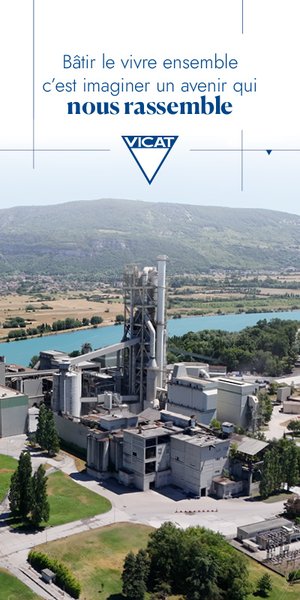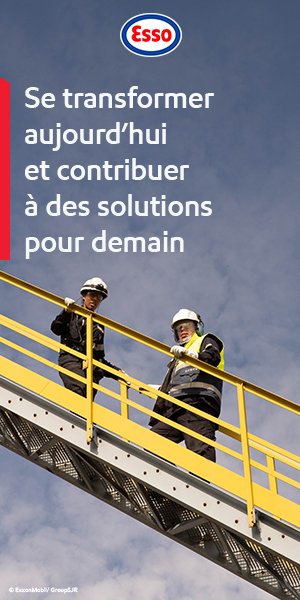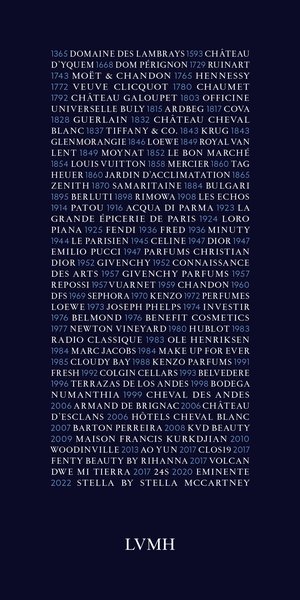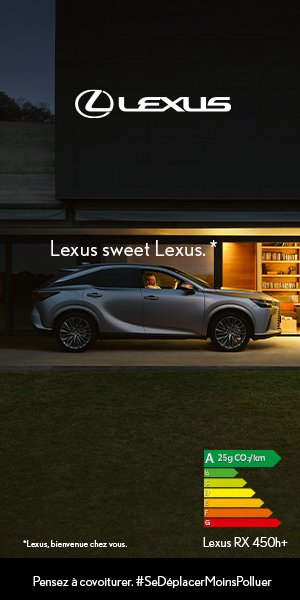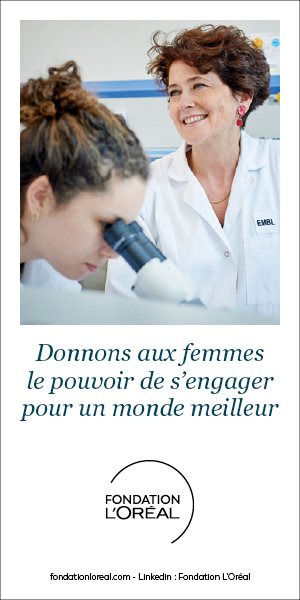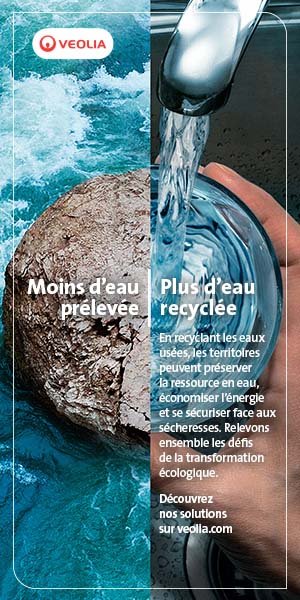Politique Internationale — The liberalisation of the energy market for private consumers goes back nearly 15 years. What has changed the most in the perception of consumers?
Xavier Pinon — According to the 2018 data of the Energy Ombudsman, two out of three of the French now know that the market is deregulated. This is already a good thing because we have come a long way: for several years, consumers were not too aware of the evolution of the sector. In addition, in the period 2007-2010, positions were unchanged with the two historic operators, EDF and Engie (ex-GDF-Suez), which lost very little market share. Today, nearly 25 per cent of households have moved out of regulated electricity tariffs and more than 60 per cent for gas. The increased understanding of the new stakes resulted mainly from the marketing campaigns of the different providers. The Energy Regulation Commission (CRE) records some 30 challengers for EDF, including some very big companies that compete in advertising methods to beef up their customer portfolio. But the understanding of the market still has room for improvement: France is way behind the United Kingdom where the market has fully taken on board the rivalry between a whole host of providers. On that side of the Channel, it is quite mature. In France, there remains something irrational: for example, there are many consumers who fear power cuts, or even a halt in supplies if they change energy supplier, and they prefer to stick by old habits rather than make an informed choice.
P. I. — What are the reasons that push a household into changing provider?
X. P. — Several factors come into play, either separately or taken together. Moving house is often a trigger: settling into a new home immediately brings up the question of energy supplies and at the same time the choice of operator. The question of price is also a parameter that prompts people to take the plunge: energy is an indispensable commodity and its cost weighs heavily in the family budget. Changing a provider to cut costs is a logical progression. It is even more logical when an ad insert or a commercial reveals to a consumer that one or other operator is offering a discount of 5, 10 or 15 per cent compared with regulated sales tariffs. Another motivation, less well known, is dissatisfaction: bills that are considered excessive, bad service or a bad contact by telephone can prompt someone to decide abruptly to change provider. Finally, there is the protection of the environment: I am not saying that all households react to the climate emergency with the same intensity, but this element has entered their range of concerns. Because they want to contribute to the building of a more virtuous planet, a growing number of homes have decided to opt for a green energy offer. In the end, when these different factors are combined, you realise that there are many good reasons to select a new operator, be it in gas and/or electricity.
P. I. — Competition in energy is often criticised because prices don’t go down. Unlike in telecoms where the rise in influence of several operators has led to a significant fall in bills for the client…
X. P. — Behind energy prices there is a whole industrial sector whose prospects are not carved in stone. For example, the consumer knows full well that the construction of the EPR in Flamanville, in the Manche department, is coming up against difficulties and that the start-up of this new-generation nuclear reactor will be late, and this will be the cause of financial slippage. The consumer also knows that technological innovations improve the cost-effectiveness of renewable energies but asks to what point they can compete with traditional energies: in any case, the debate is not over. This absence of visibility, combined with the weight of necessary investments to make energy infrastructures function, slows down the lowering of prices. Energy, unlike telecoms, is not an industry with fixed costs: on the contrary, variable costs pile up between taxes, tariffs for using the networks and the purchase of the electron or the gas molecule. This is a reality that is far from fading.
P. I. — Green energy offers are currently much written about. On one side, observers welcome the fact that most of the providers now offer their customers supplies of renewables; on the other, these same observers warn against a green energy that might not be really green. In short, green would seem to be above all a marketing tool. What do you think?
X. P. — Let’s talk about what already exists: the so-called system of “guaranteed origin”, in conformity with European legislation, authorises providers to propose a green offer on condition that a European producer has injected into the electricity network a quantity of renewable energy equivalent to the amount they are selling. The certificate that they obtain with this aim guarantees that there are no more green electrons sold than are injected into the network: the tracing is assured. This system is a good basis and has the merit of existing. But people would now like to go further: they want, for example, the actor proposing a green offer to get supplies directly from a producer of renewables and not, as is possible today, on the ordinary market with the duty of obtaining guarantees of origin. Others who are even more demanding would like the green offer to correspond strictly to a volume of renewable energy produced by a windfarm or a solar plant situated near their homes. These consumers forget a bit too quickly that you can’t find the source of an electron: the kilowatt-hour produced by a windfarm is injected into the network but it can’t be traced to the electric socket in the home subscribing to a green offer.
P. I. — So, green offers deserve to be taken into consideration…
X. P. — Yes, because subscribing to a green offer really does permit support for guarantees of origin and so progressively to raise their prices to remunerate renewable producers. The promise of ensuring an economic traceability of renewable energy is well kept by the system of guarantees of origin. Attacks on green offers tend incidentally to criticise particularly the big energy groups who have industrial activities in nuclear or fossil energy. I think it would be more constructive to encourage the efforts of those who have really begun a transition towards more renewables.
P. I. — In a few years, the number of energy providers has soared. What can be done to find one’s way in this ultra-competitive undergrowth?
X. P. — Let us be clear: this is not easy. Beyond their apparent simplicity, energy providers’ offers are difficult to decipher. Some offer prices indexed on regulated tariffs in a way that they will rise or fall by following indices of reference. Others promise fixed-price offers, but it is necessary to know that prices can still rise if taxes rise. Yet others have fixed prices, but that can be revised lower in the event of a reduction in regulated tariffs. In this case, the drop only comes into force on the anniversary date of the contract and it is limited — which makes for an important difference. Faced with this complexity, the consumer’s suspicion is increased by media noise around the bad practices of door-to-door salesmanship. Many accounts describe in effect salesmen ringing at doors posing as technicians for the network manager who have come to read the meter.
P. I. — How can one overcome this lack of transparency of energy supply offers?
X. P. — Comparison web search engines are a precious tool for consumers. And they have not been developed by chance. When Selectra was founded in 2007, we were pioneers. Today, there are many more of us: that’s the proof that there is a demand and a real need. Aside from the comparison engines, I notice that people often put their trust in a brand. This is as true of energy as it is of other sectors: when a company has a good reputation, when it is well known to the consumer, then its sales offers naturally find a customer portfolio. Word of mouth also is also a way of creating customer loyalty: many households choose one supplier over another because someone in their circle is satisfied with it and has spoken well of it. This way of working can prompt operators to develop sponsorship schemes, in other words to reward clients who bring them other customers.
P. I. — In customers’ eyes, are regulated sales tariffs considered a safe investment? Is this Franco-French particularity a strength?
X. P. — Before anything else, we must distinguish between gas and electricity. In gas, the controlled tariffs applied by Engie (ex-GDF Suez) will be abolished in 2023. The process is already well under way because the group is no longer selling any gas supply contracts at regulated prices. In electricity, EDF’s controlled prices are not likely to disappear; in any case, there is no sign of this. So, yes, these regulated prices are a safe investment simply in the sense that they serve as a gauge on which the competition’s tariffs hinge. They are like a compass that gives the consumer direction. Let us suppose that they finally disappear forever one day: the authorities might take the initiative to set up new reference index that would not be connected to any offer in particular.
P. I. — What is the typical profile of the consumer who consults a comparison search engine on the Internet such as Selectra?
X. P. — We are there for everybody. The youngest fringe of our clientele goes straight to the search engine: they want to have a global view of the landscape so as to narrow down their search for a supplier. The older clientele will favour group purchases. Let’s recall the principle: with the help of a partner, such as Familles de France or WWF France, Selectra will set up a portfolio of clients who want a better price. Once this portfolio has been established — at the end of a period of pre-enrolment — we do the rounds to find which operator is inclined to give the most attractive tariff for a period of one year or more. The experience of these group purchase bids is convincing. Several thousand consumers sign up and get a significant reduction. We also aim for people who are seeking specific details: I am coming back to green energy and the possibility we offer to choose as closely as possible 100 per cent renewable offers.
P. I. — The intelligent electricity meter Linky is being installed in thousands of homes. What does this really bring to the consumer? Will it allow the consumer to benefit from new sales offers?
X. P. — I shall not dwell on the polemics that surround the deployment of this big programme. Basically, I am not sure that this new tool will immediately revolutionise the daily life of the consumer. For one thing, the consumers will not have their eyes glued to Linky to follow the evolution of the curve of their expenses. For another, for commercial offers to be much more detailed than today, the providers would need a maximum number of consumption data. And we have seen what happened: Linky’s first steps were made difficult because of worries around respect for private life. In these conditions, even if Linky can improve everyone’s knowledge of electricity consumption, the juridical and regulatory constraints are such that the deal will not change in the short term. In the medium term, however, more and more informed consumers will take an interest in new offers proposing, for example, off-peak hours on personalised schedules.
P. I. — Selectra was founded in 2007 at a time when the liberalisation of the energy market was in its infancy.
To conclude, 13 years later, what has most surprised you in the evolution of this sector?
X. P. — Firstly, let me tell you that we do not regret for one second having launched Selectra. At the time, we wanted to create a company in an area that would be at a cross-roads and where the landscape was likely to change. From that side, the specifications were perfectly fulfilled and this is not finished because energy is still a sector undergoing change. With some hindsight, we are impressed by the number of actors: who could have imagined that a good 30 suppliers would now be competing with EDF to provide electricity? Of course, movements of consolidation cannot be ruled out but this competition is on course to remain lively. To demonstrate this, there are now three giants playing in the same yard: EDF, Engie and Total Direct Energie. Another surprise is to be found in the capacity for marketing innovation of the different operators: you could think that the system of offers is now well defined, but not at all — new formulae are regularly put into effect. For example, we see distributors who link energy subscriptions to discount vouchers for their shops. Finally, apart from the increase in the number of actors and their commercial inventiveness, I would highlight the rise of the climate emergency. Now, almost all suppliers propose green solutions and the appetite of consumers is growing. Everyone knows that the energy sector must become much more virtuous on the environmental plane.
* Co-founder of the comparison web search engine Selectra.
